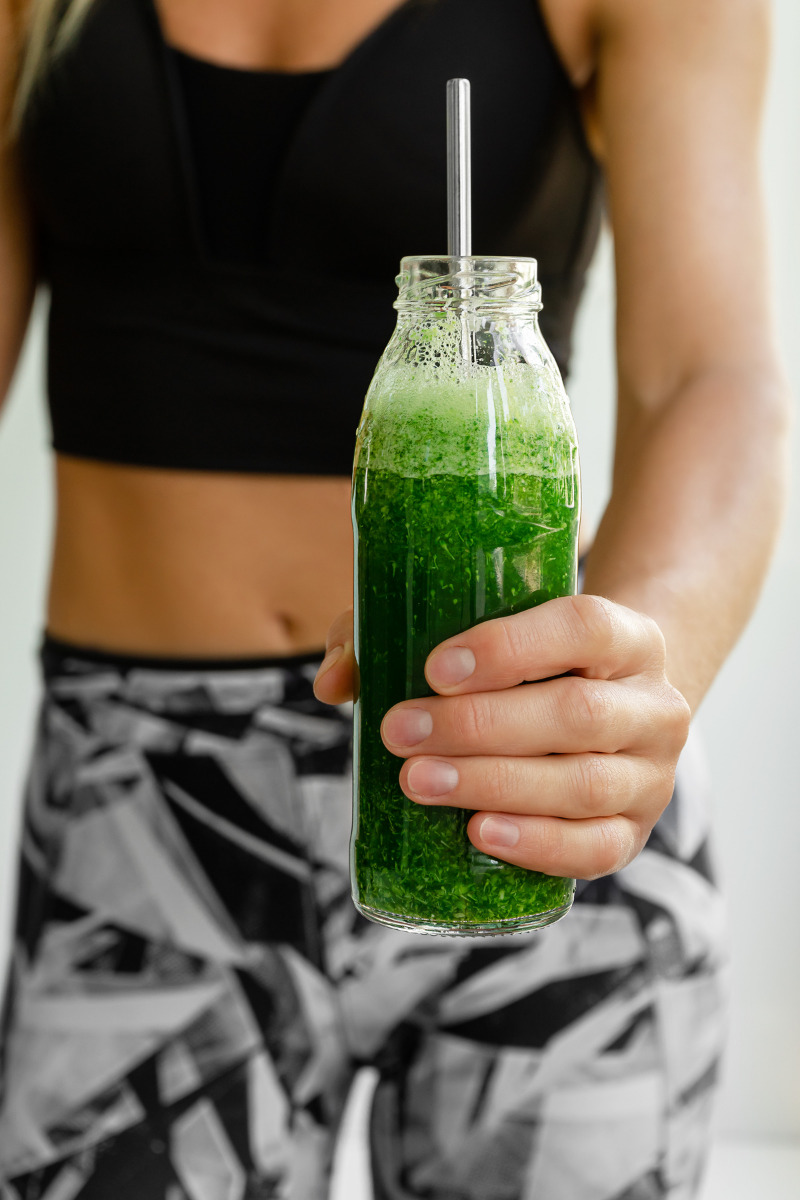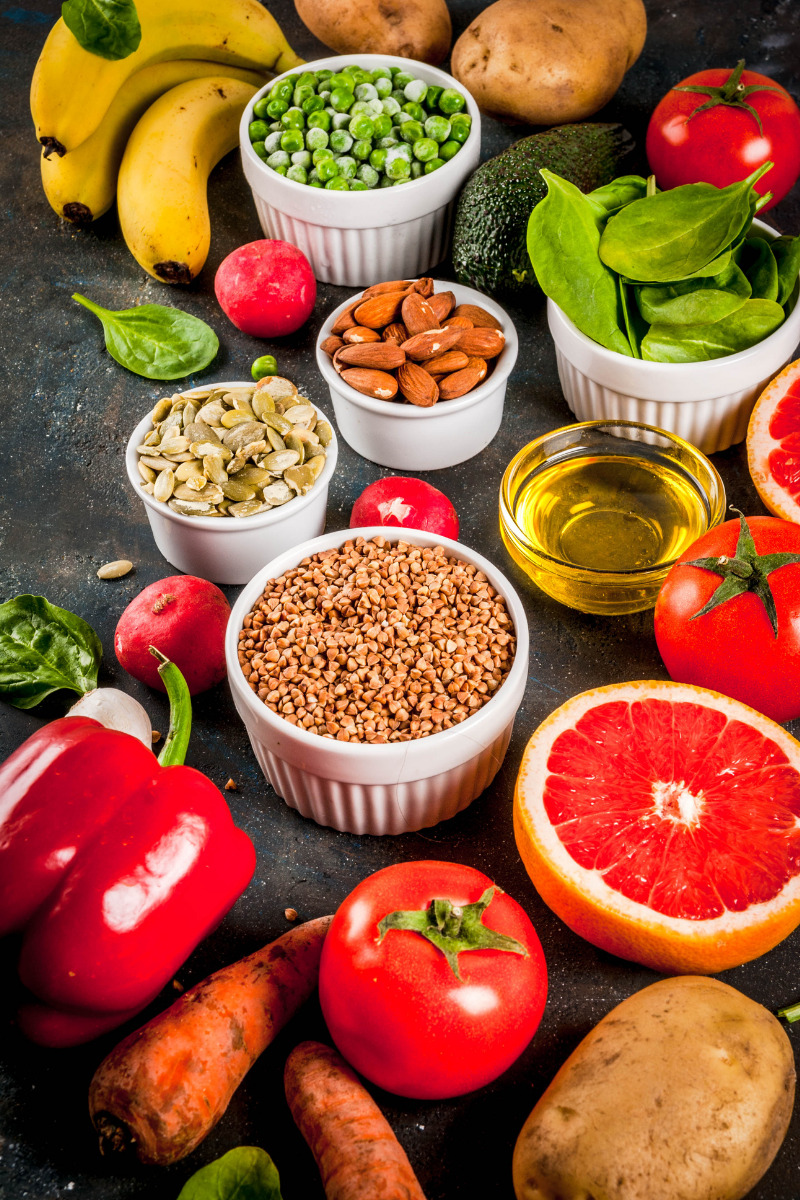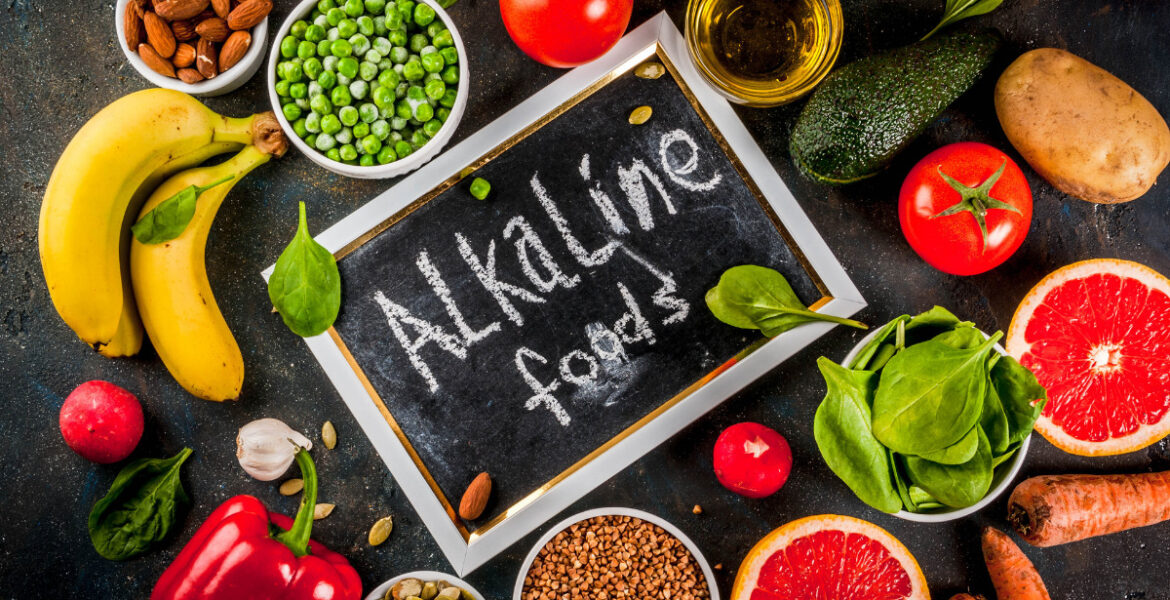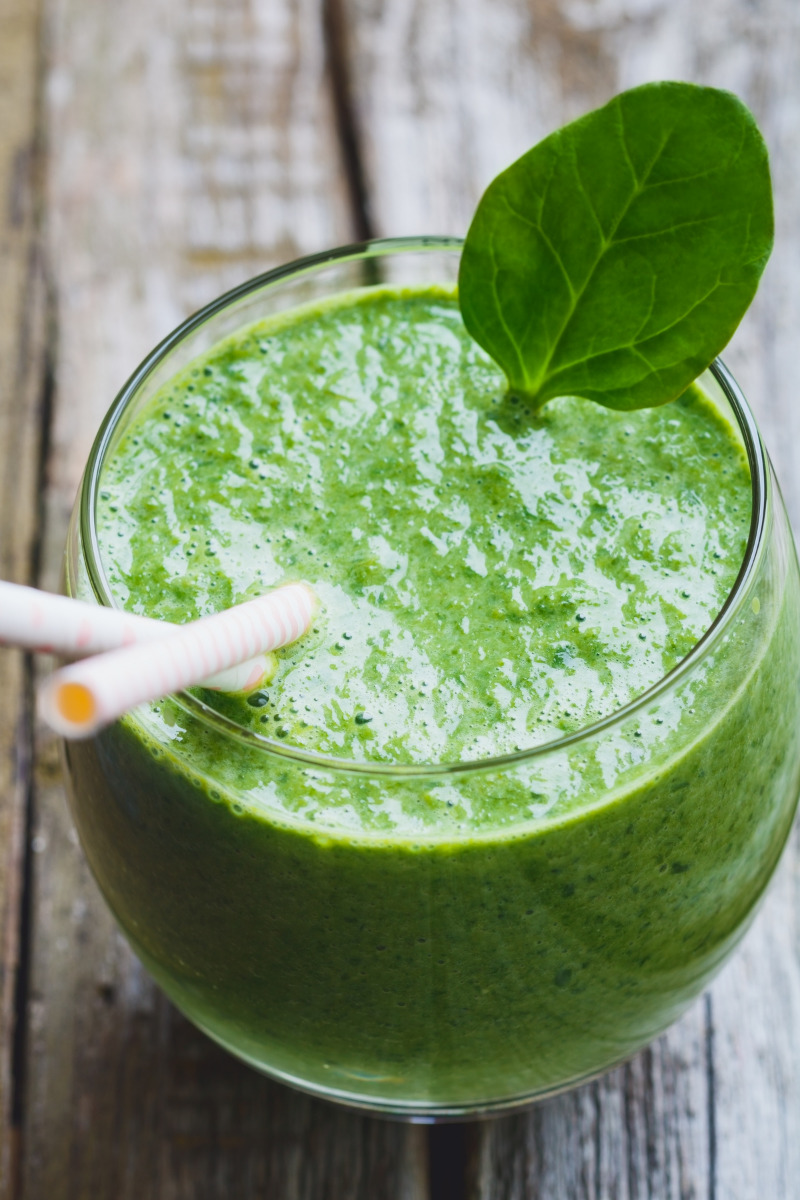Celebrities such as Victoria Beckham, Jennifer Aniston, and Kate Hudson have touted the benefits of an alkaline diet. So you may have become familiar with this term if you follow any of these women. If you want to create optimum health, it’s important to evaluate the acidity level of the foods you regularly consume. Whether you’ve suffered from heartburn or other digestive issues, it often comes down to the types of foods you’ve been eating.
Many dietary experts agree that the more alkaline your diet, the better it is for your body. You might be wondering – what does that mean? Well, foods range in their pH level – from highly acidic to highly alkaline.
To help you understand more, this guide shares an overview of what alkalinity means for your body, the differences between alkaline foods vs. acidic foods, and tips on how you can follow an alkalizing lifestyle and reap its benefits!

What is an alkaline diet?
The alkaline diet is a diet that focuses on alkaline foods and drinks for the purpose of improving health. It’s important to note that this isn’t an “acid-reducing” diet, but rather one that reduces acidity. In other words, it is a high alkaline food regimen as opposed to a low alkaline food regimen.
Adhering to an alkaline diet can help prevent or reduce the risk of certain diseases or illnesses, and can definitely help prevent common issues like heartburn (I’m living proof of that!). After indulging in all types of decadent foods during a food & wine festival one year, I ended up with a bad case of heartburn (that lasted two weeks). At first, I had no idea what I was experiencing, so I went to an acupuncturist to help me figure it out. After describing my symptoms, he immediately said – “You have heartburn because you’ve been eating too many acidic foods. Here’s a list of alkaline foods – eat these for the next few weeks, and you’ll feel better.” He was right! After a couple of weeks of being on an alkaline diet, my heartburn was gone.
What do dietitians think about the alkaline diet?
While there haven’t been many studies to prove the efficacy of the alkaline diet, many dietitians would agree that incorporating more healthy vegetables and fruits into your diet is good for you.
As reported by Today’s Dietitian Magazine, “An article published in The Journal of the American Dietetic Association used a calculation model to indicate the extent to which different foods affect urine acidity. These assigned values have been used to quantify the acid- or base-forming potential of foods. In general, meat, poultry, fish, dairy products, caffeine, sugar, and salt are the most acid-forming, while fruits and vegetables are the most alkaline-forming (mainly due to protein and mineral content).”
They also cited that while there are no clinical trials to prove the efficacy of the alkaline diet, they did state, “Bottom line? It’s certainly not a bad idea to recommend shifting the diet to include more fruits and vegetables. With the myriad of health advantages offered by a diet rich in fruits and vegetables, the biochemical explanation for these benefits might become a moot point.”

What types of foods are alkaline?
The alkaline diet consists primarily of alkalizing foods such as whole grains, vegetables, fruits (especially non-sweet citrus), nuts, and seeds (including flaxseed oil). Predominantly, a plant-based diet (containing natural whole foods) is often considered higher on the alkaline (pH) level, so it’s often better for your digestive system and overall body in general.
- Broccoli
- Cucumber
- Cauliflower
- Spinach
- Cabbage
- Lettuce
- Celery
- Tomatoes
- Kale
- Bell Peppers
- Garlic
- Asparagus
- Onions
- Almonds
- Lemon
- Lime
- Blueberries
- Avocados
- Herbal teas
What types of foods are acidic?
Avoiding or minimizing acidifying foods like meats, dairy, and sugars will help maintain an alkaline diet. Below are examples of highly acidic foods (that often create inflammation in the body and other imbalances, resulting in illnesses and conditions like heartburn).
- Sodas
- Fruit juice
- Coffee
- Cheese
- Ice cream
- Pork
- Chicken
- Sugar
- Pastries
- Desserts
- Meat
- White bread
- Alcohol
- Eggs
- Fish
- Fast food
- Processed food
Other reasons why an alkaline diet is better for your health
A diet with alkaline foods helps to maintain balance in the body. A diet high in alkalinity will lower your stress levels, improve sleep quality and mental clarity, strengthen defenses against illness and disease, regulate weight gain or loss, reduce inflammation from food sensitivities and allergies (among other health conditions), and help detoxification pathways work faster and more efficiently too.
If you’re the type of person who’d prefer to heal your body naturally (and not live on OTC medications like Tums or Pepto Bismol), then it’s definitely worth trying to consume more foods that have higher alkaline levels. After a few weeks, you’ll start to feel healthier and experience fewer symptoms of digestive issues.
I also encourage you to read about the gut microbiome and find out how our gut health plays a key role in our well-being as well. For more diet and nutrition tips (including healthy recipes), visit the Diet & Nutrition section on I&C.
[Disclaimer: This post is for general and informational purposes only and is not considered medical advice. Always consult with a registered dietitian or medical doctor prior to following any specific diet. All opinions are my own. Images via Canva.]


















